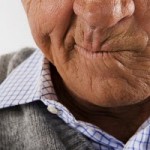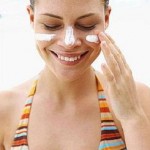 The skins of the elderly suffer more because they are weak and susceptible to not being maintained in adulthood. Preventive measures, the use of specific products and regular visits to the dermatologist reduce the risk of skin problems.
The skins of the elderly suffer more because they are weak and susceptible to not being maintained in adulthood. Preventive measures, the use of specific products and regular visits to the dermatologist reduce the risk of skin problems.
Too much sun and obsolescence of protective creams in adulthood lead to increased wrinkles and a weakening of the skin in old age, making it more sensitive and increases the risk to suffer from skin diseases. In these circumstances, the Spanish Academy of Dermatology has warned that the aging of the skin is an issue that deserves the attention of those affected, their families and health authorities.
How other body organs, skin, over time, it ages and deteriorates. The elderly should take extra care as wrinkles and dryness make it more sensitive and increases the likelihood of sunburn.
Environmental changes in temperature cause more dry skin. Therefore, especially the elderly have to keep hydrated and protected from these changes and ultraviolet rays. The areas most photo exposed are neck and face, and that is where we must exercise extreme care.
According to the Spanish Academy of Dermatology (AEDV), special moisturizers for each area of the body are essential for the elderly regardless of having it or not in bad shape as it is necessary to wear clothing and footwear appropriate to the changing climate.
The more continuous use of medication during this stage of life makes manifest in some skin intolerance reactions, etc…
The AEDV recommends that seniors attend at least once a year to a dermatologist if the patient does not suffer serious skin lesions and tumor, or badly damaged skin from the sun. In this case, the visits should be scheduled at least every 6 months.
In cases where the patient has limited mobility because of age, illness or having to spend much time in bed is likely to be difficult to heal ulcers, so the easiest thing is that the caregiver take care to avoid friction and pressure on areas affected by changing his position every two or three hours.
Prevention during adulthood affects the skin condition in old age, and even taking care is difficult to maintain a completely healthy skin. Thanks to the media the population is becoming more aware of the risk experienced by the skin and consults your dermatologist when they see a risk factor, such as increased size of a mole or redness of it.
Dermatology recommends:
The elders use moisturizers specifically for each area of the body.
An annual consultation to a dermatologist if you have a healthy skin and at least two if you photo aged skin.
Those responsible for the care of elderly with limited movement must change position every 2 or 3 hours to prevent ulcers.
The footwear and clothing that protect them from climate change.
Prevent of wrinkles caused by the sun during adulthood with specific creams.
Avoid the use of snuff, which is involved in skin aging.
Mole or appearance of any skin lesion must consult with specialist.



